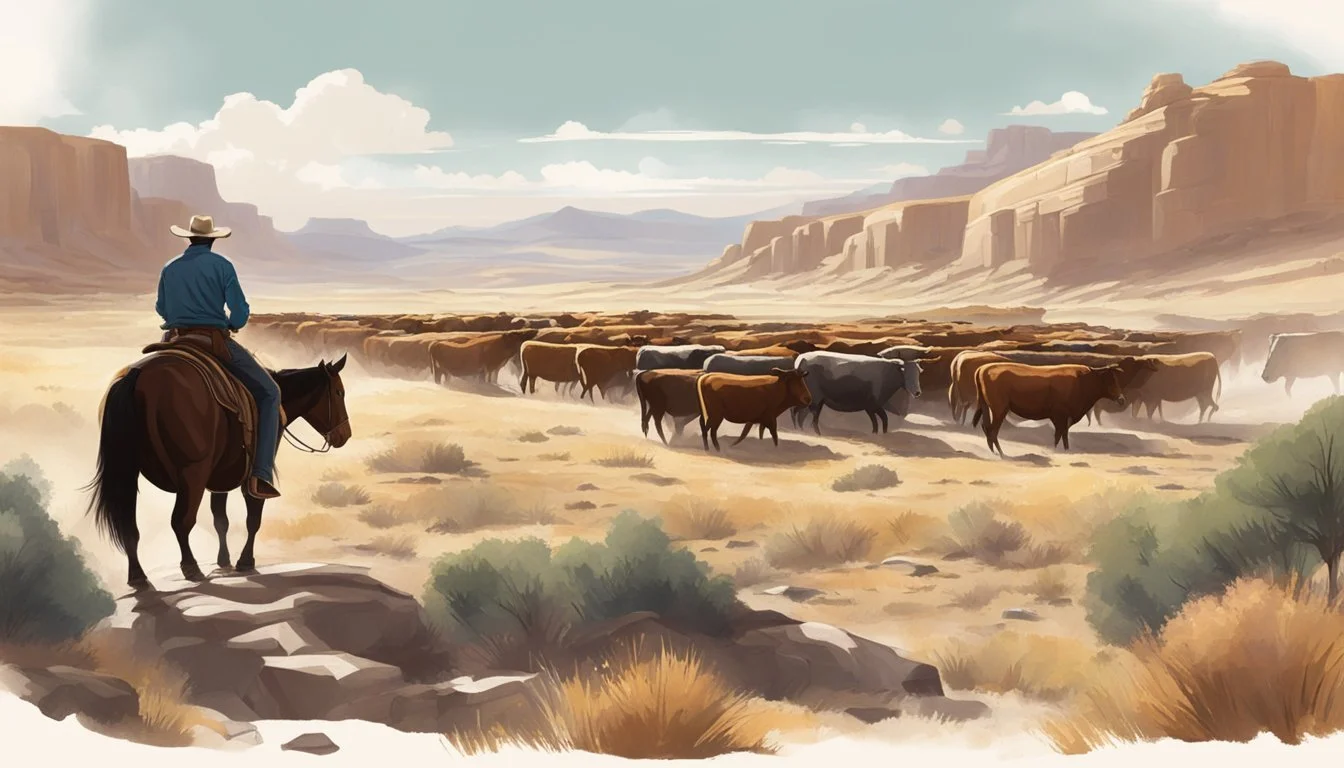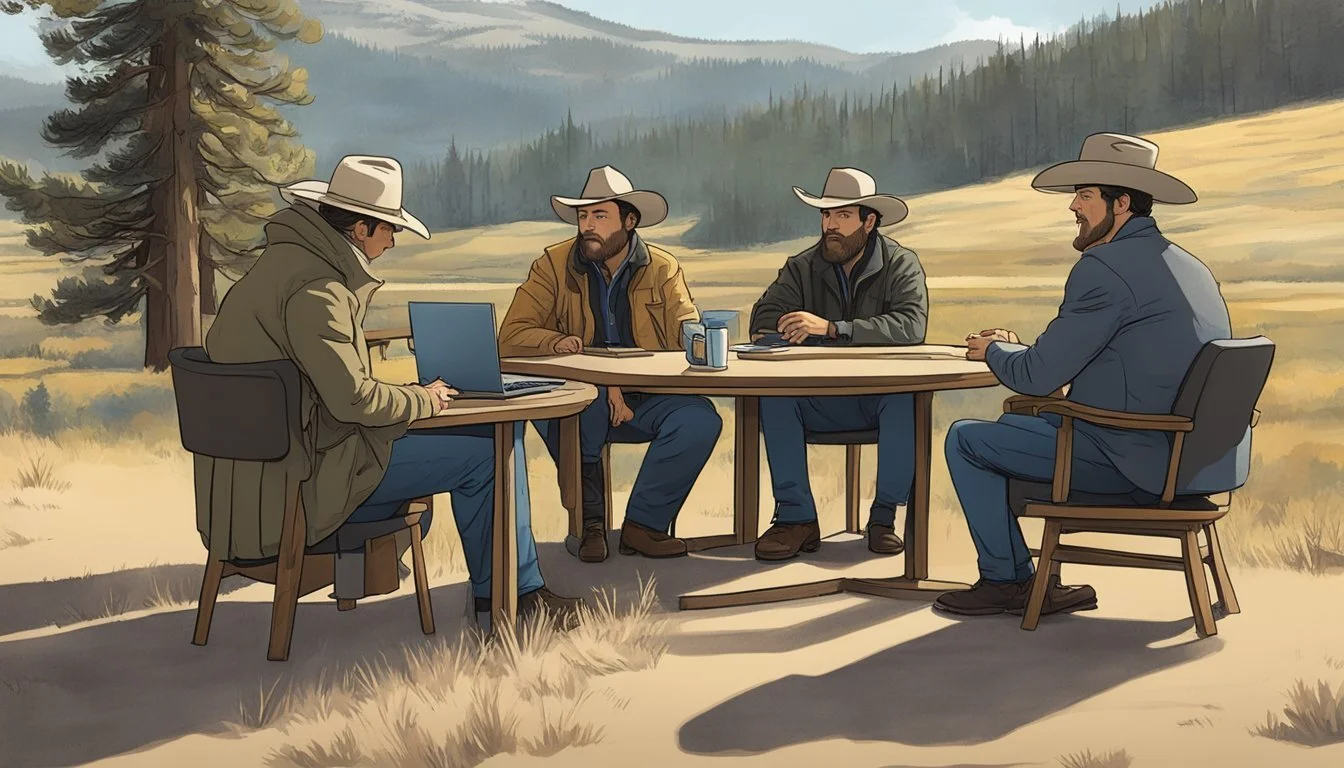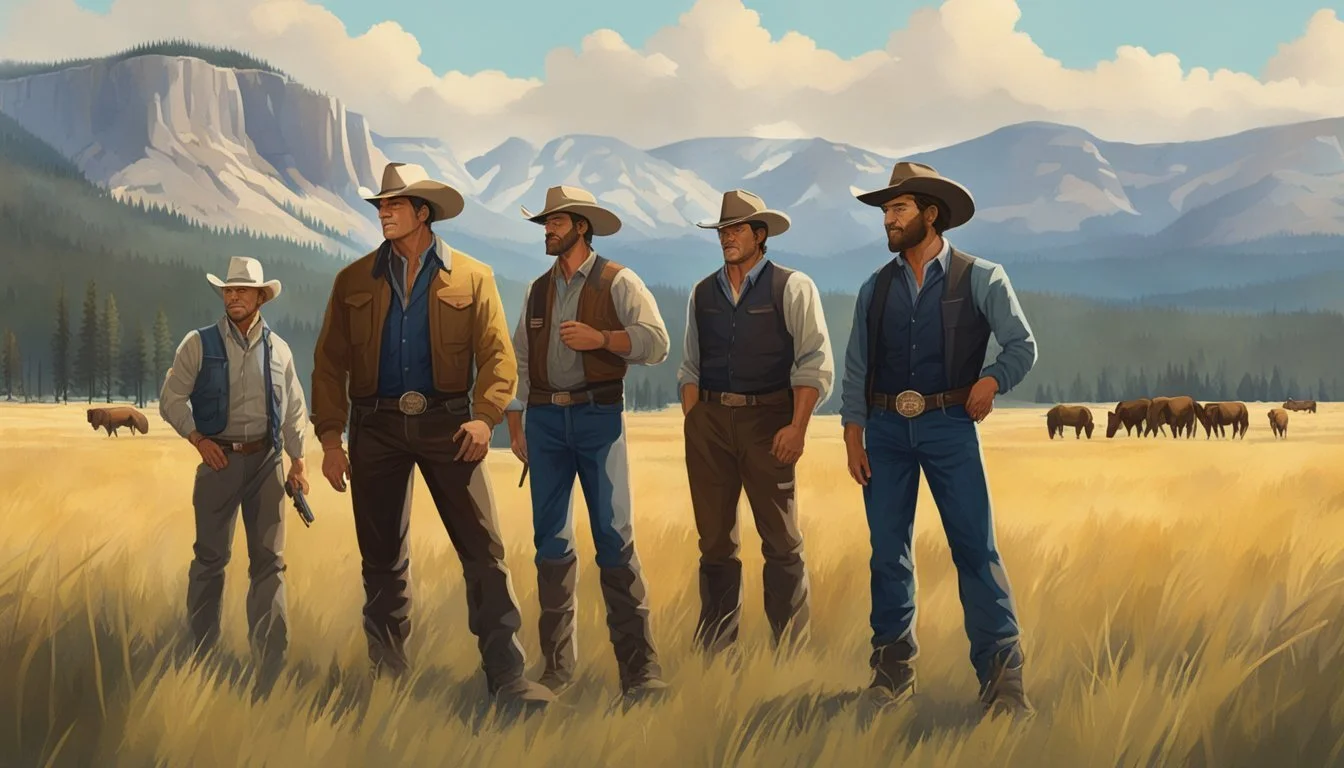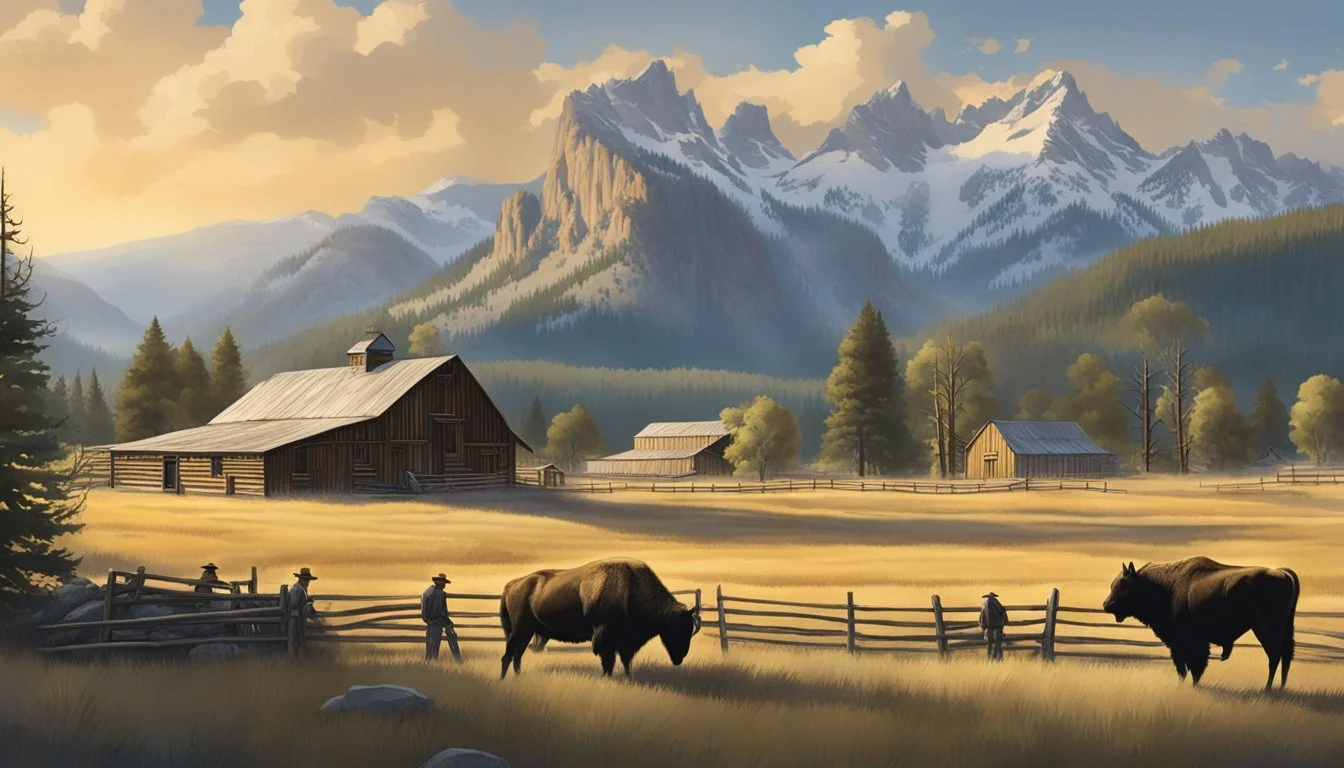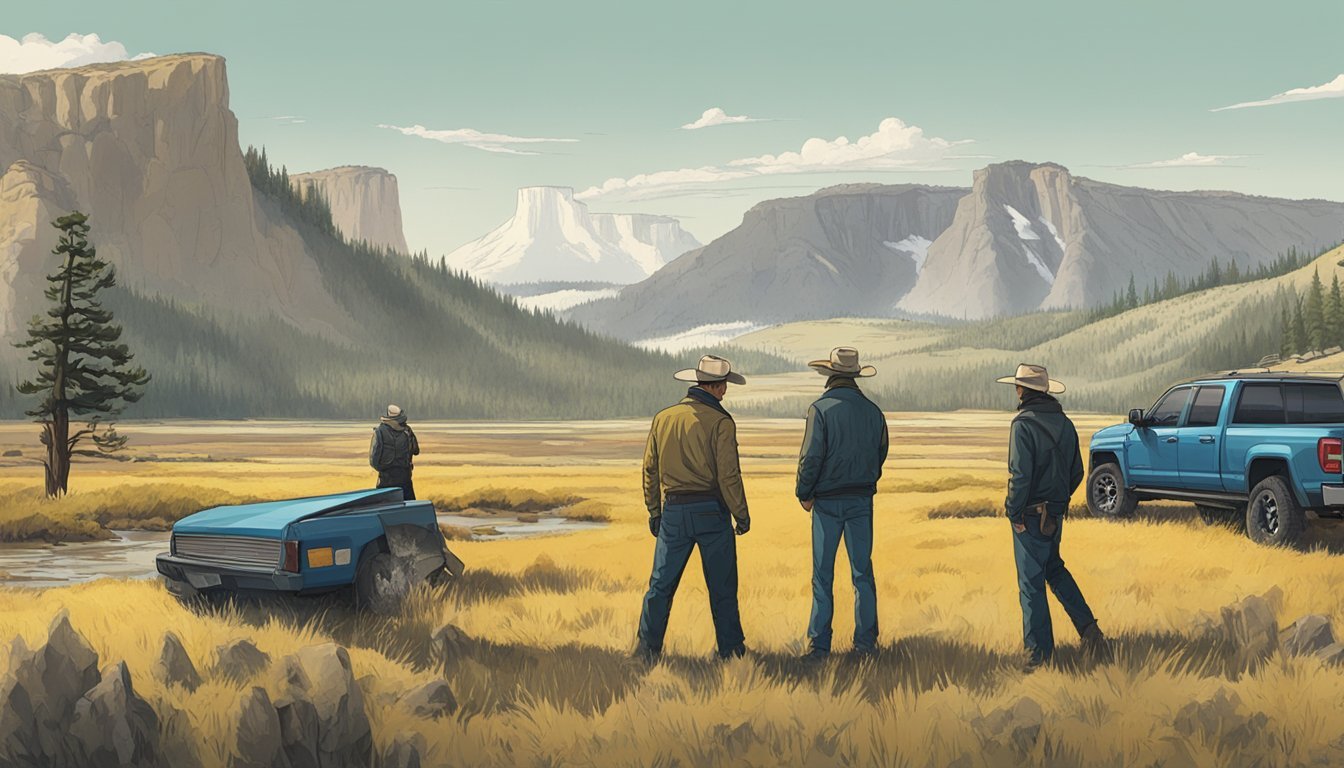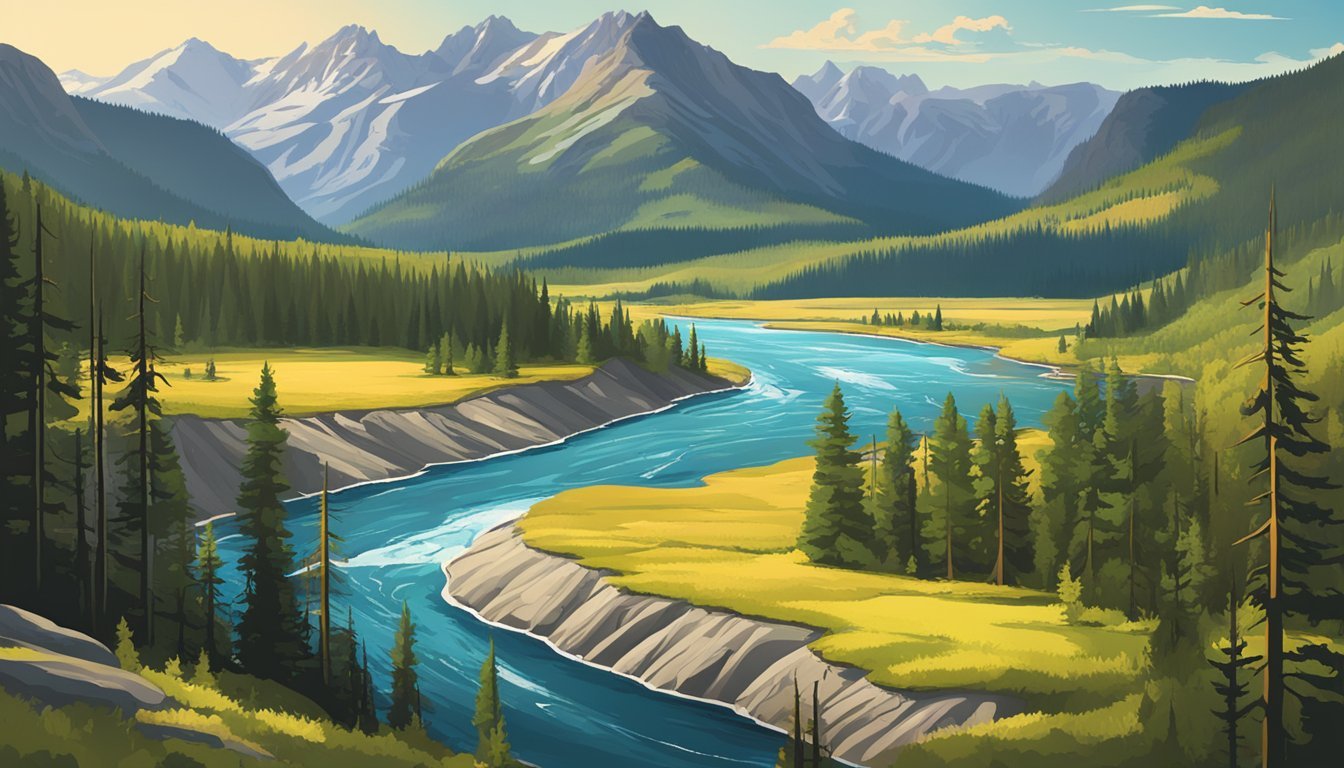Unraveling the Hype: Yellowstone Show Reviews Dive Deep into the Western Drama!
Yellowstone has captivated audiences with its gripping portrayal of the Dutton family's struggle to maintain control of their vast Montana ranch. Created by Taylor Sheridan, this modern Western drama stars Kevin Costner as patriarch John Dutton, leading an ensemble cast through intense power struggles and family dynamics.
Critics and viewers have given Yellowstone largely positive reviews, praising its stunning cinematography and compelling performances. The show's first season received a 58% approval rating on Rotten Tomatoes, with subsequent seasons seeing significant improvements. Season 3 achieved a perfect 100% score, while Season 4 maintained a strong 91% rating.
Yellowstone's blend of traditional Western themes with contemporary issues has struck a chord with audiences. The series explores land disputes, political maneuvering, and the clash between old and new ways of life in the American West. As the show progresses through its fifth season, it continues to generate buzz and spark discussions about its complex characters and intricate plotlines.
Series Overview
Yellowstone chronicles the conflicts surrounding the Dutton family's vast Montana ranch. The neo-Western drama series blends family dynamics with high-stakes power struggles in a picturesque setting.
Plot and Setting
Yellowstone centers on the Dutton family, led by patriarch John Dutton, as they fight to maintain control of their sprawling ranch in Montana. The series is set against the backdrop of Yellowstone National Park and the surrounding areas. Conflicts arise from various sources, including land developers, Native American reservations, and the national park itself.
The ranch serves as a focal point for the story, representing both the family's heritage and the changing landscape of the American West. The show explores the complexities of modern ranching, balancing traditional ways with new challenges.
Development and Production
Creator Taylor Sheridan drew inspiration from his experiences in the American West to craft Yellowstone's narrative. The series premiered in 2018 on the Paramount Network. Sheridan's vision for a modern Western drama attracted a talented cast, including Kevin Costner in the lead role of John Dutton.
Filming primarily takes place in Montana and Utah, capturing the rugged beauty of the region. The production team works to ensure authenticity in depicting ranch life and the local culture.
Themes and Tone
Yellowstone delves into themes of family loyalty, power, and the clash between tradition and progress. The show examines the complexities of land ownership and the challenges faced by ranchers in the modern era.
The tone of the series is often dark and intense, with moments of violence juxtaposed against the serene Montana landscape. Family dynamics play a central role, exploring the relationships between John Dutton and his children.
Yellowstone also touches on issues affecting Native American communities and their relationship with the surrounding population. The series presents a nuanced portrayal of life in the modern American West, blending elements of classic Westerns with contemporary storytelling.
Creator and Production
Taylor Sheridan's creative vision and meticulous production approach have shaped Yellowstone into a visual masterpiece. The show's stunning landscapes and compelling cinematography transport viewers to the rugged Montana wilderness.
Taylor Sheridan's Vision
Taylor Sheridan, the creator of Yellowstone, brings his unique storytelling style to the series. Known for his work on films like Sicario, Hell or High Water, and Wind River, Sheridan infuses Yellowstone with gritty realism and complex characters.
His writing explores themes of family, power, and the changing American West. Sheridan's background as a Texas native and former ranch hand lends authenticity to the show's portrayal of modern cowboy life.
Paramount Network has given Sheridan significant creative control, allowing him to craft a narrative that resonates with audiences across the country.
Filming Locations
Yellowstone primarily films in Montana, capturing the state's breathtaking natural beauty. The iconic Dutton Ranch is actually Chief Joseph Ranch in Darby, Montana, a working cattle ranch that serves as the show's primary filming location.
Other Montana locations include Missoula, Hamilton, and the Bitterroot Valley. These sites provide the perfect backdrop for the show's sweeping vistas and rugged terrain.
Utah has also served as a filming location for some scenes, offering additional variety to the show's visual palette.
Cinematography
Yellowstone's cinematography is a standout feature, showcasing the grandeur of the American West. The show employs wide shots to capture the vastness of Montana's landscapes, from rolling prairies to snow-capped mountains.
Cinematographers use natural light to enhance the beauty of outdoor scenes. This technique creates a sense of authenticity and immerses viewers in the environment.
Close-up shots during character interactions add emotional depth, while carefully composed frames highlight the tension between modern development and untamed wilderness.
Cast and Characters
Yellowstone features a talented ensemble cast portraying complex characters at the heart of its gripping neo-Western drama. The series revolves around the Dutton family and those in their orbit, bringing the world of Montana ranching to life.
Main Cast Profiles
Kevin Costner leads as John Dutton, the patriarch of the Dutton family and owner of the vast Yellowstone Ranch. His commanding presence anchors the show. Kelly Reilly plays Beth Dutton, John's fiercely intelligent and ruthless daughter. Luke Grimes portrays Kayce Dutton, John's youngest son, torn between family loyalty and his own path.
Wes Bentley takes on the role of Jamie Dutton, the ambitious and conflicted adopted son. Cole Hauser embodies Rip Wheeler, the loyal ranch foreman and Beth's love interest. Kelsey Asbille rounds out the main cast as Monica Long Dutton, Kayce's wife and a Native American woman navigating two worlds.
Supporting Characters
The show's rich tapestry extends beyond the Duttons. Gil Birmingham plays Thomas Rainwater, chairman of the nearby Native American reservation and frequent Dutton adversary. Forrie J. Smith portrays Lloyd Pierce, a senior ranch hand with deep ties to the Duttons.
Jefferson White brings comic relief as Jimmy Hurdstrom, a young cowboy learning the ropes. Jen Landon's Teeter adds a unique flavor to the bunkhouse crew. Danny Huston appears as Dan Jenkins, a developer at odds with the Duttons' interests.
Character Development
Yellowstone excels in its nuanced character arcs. John Dutton grapples with preserving his legacy while facing mounting threats. Beth's hard exterior gradually cracks as her relationship with Rip deepens. Kayce struggles to balance his duties to the ranch, his family, and his Native American heritage.
Jamie's journey is marked by internal conflict and shifting allegiances. Rip's unwavering loyalty is tested as he becomes more entwined with the Dutton family dynamics. Supporting characters like Jimmy and Lloyd provide depth to the ranch's daily operations and cowboy culture.
The series masterfully weaves personal growth with the larger narrative of land disputes, political maneuvering, and the changing face of the American West.
Critical Reception
Yellowstone's critical reception has evolved significantly since its debut. The show garnered mixed reviews initially but has seen improved ratings and audience response over time.
Reviews and Ratings
Yellowstone's early seasons received lukewarm reviews from critics. Professional reviewers gave the first season lower scores compared to audience ratings. As the series progressed, critical reception improved. Later seasons earned higher ratings and more positive feedback. This shift coincided with the show developing stronger plotlines and characters.
Rotten Tomatoes, a trusted review aggregator, reflects this trend. While early seasons struggled critically, later installments saw boosted scores. The improvement in ratings suggests the show found its footing and resonated more with critics over time.
Audience Reception
Viewers have consistently shown strong support for Yellowstone. Audience ratings have typically been higher than critical scores, especially in the early seasons. The show's popularity has grown steadily since its debut, attracting a large and dedicated fanbase.
Yellowstone's appeal spans diverse demographics. Its blend of drama, action, and political intrigue resonates with many viewers. The series has become a cultural phenomenon, achieving impressive viewership numbers. The Season 4 finale, for example, nearly doubled its audience compared to previous seasons.
Criticisms and Praise
Critics initially found fault with aspects of Yellowstone's storytelling and pacing. Some viewed it as a soap opera set against a Western backdrop. However, as the series progressed, many reviewers praised its character development and complex narratives.
The show's creator, Taylor Sheridan, acknowledged the early critical divide. He suggested the series was designed to challenge viewers, potentially contributing to mixed initial reactions. Praise has been given to Yellowstone's portrayal of modern Western life and its exploration of family dynamics and power struggles.
Critics have also commended the show's production values, performances, and cinematography. The series' ability to blend traditional Western elements with contemporary themes has been noted as a strength.
Cultural Impact and Legacy
Yellowstone has left an indelible mark on television and popular culture. The show's influence extends far beyond its viewership numbers, reshaping perceptions of the American West and sparking conversations about land ownership, family dynamics, and political power.
Influence on the Western Genre
Yellowstone breathed new life into the Western genre, ushering in the era of the "modern Western" or "neo-Western." The show blends traditional cowboy aesthetics with contemporary issues, creating a unique narrative that resonates with today's audiences.
This fresh approach has inspired other productions to explore similar themes and settings. Taylor Sheridan's creation has paved the way for a resurgence of Western-themed content across various media platforms.
The series' success has also prompted a reevaluation of rural American stories in mainstream entertainment, highlighting the complexities of life in the modern West.
Fan Base and Communities
Yellowstone's popularity has fostered a dedicated and passionate fan base. Online forums, social media groups, and fan sites have become hubs for discussions, theories, and shared appreciation of the show.
These communities extend the viewing experience beyond each episode, creating a year-round engagement with the Yellowstone universe. Fans often organize watch parties, create fan art, and participate in show-themed events.
The series has also sparked interest in ranch life and Western culture among its viewers, with some fans even planning vacations to Montana to experience the landscape featured in the show.
Merchandising and Media
Yellowstone's cultural impact is evident in its extensive merchandising and media presence. The show has spawned a range of products, from clothing lines inspired by the characters' wardrobes to home decor items reflecting the ranch aesthetic.
Books, podcasts, and behind-the-scenes content have further expanded the Yellowstone brand. The series has also influenced fashion trends, with Western-inspired looks gaining popularity in mainstream style.
Additionally, the show's success has led to spin-off series and prequels, creating a broader Yellowstone universe that continues to captivate audiences and solidify its place in television history.
Comparison with Other Series
Yellowstone shares similarities with several acclaimed dramas while maintaining its unique identity. The show's blend of family dynamics, power struggles, and scenic backdrops draws comparisons to both contemporary and classic series.
Similarities to Other Dramas
Yellowstone's focus on a wealthy, influential family echoes elements of iconic shows like Dallas and Dynasty. The Duttons' conflicts over land and power mirror themes seen in Billions, where high-stakes financial battles unfold. Like Ozark, Yellowstone delves into complex family relationships against a backdrop of criminal activities and moral ambiguity.
The show's rural setting and exploration of modern Western life draw parallels to "horse operas" of the past, updating the genre for contemporary audiences. Yellowstone's storytelling style, featuring intricate plotlines and character development, aligns with critically acclaimed dramas like The Last Tycoon.
Unique Aspects of Yellowstone
Yellowstone sets itself apart through its breathtaking Montana landscapes, which serve as more than just a backdrop. The show's deep dive into ranching culture and land preservation issues is distinctive. Its exploration of Native American rights and conflicts adds depth rarely seen in similar dramas.
The series balances intense family drama with action sequences and political intrigue, creating a unique blend of genres. Yellowstone's portrayal of modern cowboy culture and the challenges facing traditional ways of life in the American West gives it a fresh perspective. The show's ability to tackle contemporary issues while maintaining a timeless feel contributes to its broad appeal.
Yellowstone Universe Expansion
The Yellowstone franchise has grown significantly beyond its original series. Multiple prequels and spin-offs explore different eras of the Dutton family saga, while related media expands the universe further.
Prequels and Spin-offs
Taylor Sheridan has created several Yellowstone prequels set in different time periods. "1883" stars Tim McGraw and follows the Dutton family's journey to Montana in the late 19th century. "1923" takes place in the early 20th century, depicting another generation of Duttons. The upcoming "6666" (pronounced "four sixes") is set in the present day at a Texas ranch.
These spin-offs provide deeper insights into the Dutton lineage and the challenges faced by ranchers across different eras. Each series maintains the gritty, dramatic tone established by the original Yellowstone while offering unique perspectives on American history and culture.
Related Media
The Yellowstone universe extends beyond television series. Books, podcasts, and merchandise allow fans to further immerse themselves in the world of the Duttons. Official companion guides offer behind-the-scenes looks at the show's production and provide additional context for the characters and settings.
Online communities have formed where viewers discuss theories and share their passion for the franchise. The expansion of the Yellowstone brand has also influenced tourism, with fans visiting filming locations in Montana and other Western states featured in the shows.
Themes and Representation
Yellowstone explores complex themes of power, culture, and family against the backdrop of Montana's rugged landscape. The show delves into political machinations, societal tensions, and interpersonal relationships that shape the characters' lives and decisions.
Politics and Power Struggles
Yellowstone portrays intense political conflicts between various factions vying for control of the land. The Dutton family, led by patriarch John Dutton, faces constant challenges from developers, government officials, and Native American tribes. Thomas Rainwater, the ambitious leader of the nearby reservation, emerges as a formidable opponent to the Duttons' interests.
The series highlights the complex web of alliances and rivalries that define local politics. Land disputes, water rights, and economic development become battlegrounds for power. Characters engage in strategic maneuvering, leveraging their connections and resources to gain advantages.
Yellowstone's portrayal of political intrigue resonates with viewers, offering a glimpse into the often-overlooked power dynamics of rural America.
Cultural and Social Commentary
Yellowstone provides a nuanced exploration of cultural clashes and social issues in the American West. The show examines the tensions between traditional ranching lifestyles and modern development pressures. It depicts the struggles of Native American communities to preserve their heritage and assert their rights.
The series addresses themes of environmental conservation, showcasing conflicts between ranchers and government agencies over land management policies. Yellowstone also touches on issues of economic inequality, gentrification, and the changing demographics of rural areas.
Through its diverse cast of characters, the show offers multiple perspectives on these complex social issues, encouraging viewers to consider different viewpoints.
Family Dynamics and Romance
At its core, Yellowstone is an intriguing family affair centered around the Duttons. The show explores the complex relationships between John Dutton and his children, each grappling with their own desires and loyalties. Sibling rivalries, generational conflicts, and the weight of family legacy drive much of the drama.
Romance plays a significant role in Yellowstone, often intertwining with political and familial storylines. Characters navigate passionate relationships amidst the backdrop of ranch life and power struggles. These romantic entanglements add depth to the characters and create additional layers of conflict and tension.
The series examines themes of loyalty, sacrifice, and the challenges of balancing personal desires with family obligations.
Show's Evolution
Yellowstone's journey from its debut to the finale showcases significant growth in storytelling and character development. The series has refined its approach to Western drama while maintaining its core themes.
Season Progression
Season 1 introduced viewers to the Dutton family and their sprawling ranch. Each subsequent season expanded the scope of conflicts and alliances. The show's pacing intensified, with more action-packed episodes and complex plot twists.
Character arcs deepened, particularly for Beth Dutton and Rip Wheeler. Their relationship became a central focus, adding emotional depth to the series. The inclusion of indigenous perspectives gained prominence, especially through Monica and Rainwater's storylines.
Environmental and political themes grew more nuanced as the seasons progressed. This added layers to the show's exploration of land rights and conservation issues.
Narrative Changes
Yellowstone's narrative style evolved from episodic conflicts to more serialized storytelling. Long-term story arcs became more prevalent, keeping viewers engaged across multiple episodes and seasons.
The show expanded its focus beyond the ranch, delving into state politics and corporate intrigue. This broadened the series' scope and allowed for new character introductions and dynamics.
Family drama remained at the core, but the stakes escalated with each season. International interests and larger conspiracy plots entered the fray, raising the tension. The blend of modern issues with traditional Western elements became more refined, creating a unique television experience.

